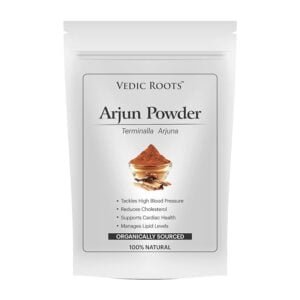Many Indians are suffering from hypertension at present. However, the good thing is that it is possible to manage this condition with the help of effective home remedies. For example, you can drink coconut water to reduce high blood pressure. Also, it will be advisable to perform yoga regularly. There are various other natural ways to minimize this condition effectively. In this article, we have mentioned the top 10 Indian home remedies for blood pressure.
Indian Home Remedies for Blood Pressure
Garlic
Indians provide lots of value to garlic as an essential household item. It is possible to eat garlic either in cooked or raw addition. The good thing is that doing so will help to minimize blood pressure. You can also include garlic in the meals in your everyday life. Garlic is also beneficial for our heart health.
Ashwagandha
Ashwagandha is an effective home remedy for reducing hypertension. Sometimes, we suffer from excessive stress which can result in an increment of blood pressure levels. However, this particular herb mentioned here will be able to get the job done successfully. We can use it in the form of a supplement or tea.
May You Like This – How to Boost Immunity with Ayurveda
Hibiscus tea
This particular remedy is also well-known when it comes to minimizing hypertension. It provides us with a tart flavor, and it is essential to drink this tea regularly to get the required benefits. If you want to lead a healthy and happy life, it’ll be advisable to drink Hibiscus tea.

Yoga and meditation
Any individual suffering from hypertension must perform meditation and yoga. This will help to minimize excessive stress which can be responsible for increasing blood pressure levels. Performing yoga will enhance your overall health as well. On the other hand, your mind will become calm while meditating. If you want to have a healthy heart and mind, then make sure to perform meditation and yoga in your daily life.
Ginger
Ginger will provide us with lots of health benefits which include lowering blood pressure. We often use ginger while cooking our food items. Moreover, some people also add it to their tea. It has got a spicy flavor and will help us to digest our food items. The natural properties of ginger are preferred by many people, particularly in India.
Fenugreek seeds
This is yet another Indian home remedy for lowering hypertension. Make it a point to soak these seeds overnight and consume them in the morning. If you do this regularly, you will surely get the desired outcomes. We also use fenugreek while preparing our food items. The natural properties of fenugreek are also beneficial for our heart health.
Almonds
We regard almonds very highly while talking about Indian home remedies for blood pressure. It is advisable to consume several almonds every day which are packed with essential nutrients and healthy fats. You will not find it difficult to include almonds in your everyday diet because of their tasty flavor.
Lemon
This particular ingredient is packed with vitamin C which can be beneficial for our overall health. And, the good thing is that it can also play an important role in reducing hypertension. Make it a point to consume lemon water every day to enhance the health of your heart. It has also got a refreshing flavor that will help to uplift your disposition successfully. There is no doubt that it is one of the simplest ways to reduce blood pressure levels.
Arjuna Bark
Arjuna bark, derived from the Arjuna tree, acts as a natural beta-blocker, assisting in lowering blood pressure. Its efficacy lies in its ability to dilate blood vessels, promoting smoother blood flow. Understanding the proper dosage and methods of consumption ensures safe and effective utilization of this herbal remedy.

Yoga and meditation
Lastly, we will talk about meditation and yoga which are considered to be healthy practices. You will be stretching yourself gently while performing yoga which can reduce blood pressure levels significantly. At the same time, meditation will allow you to get rid of anxiety and stress. You will be able to focus your mind and relax as well.

Conclusion
Hopefully, all these aforementioned Indian home remedies for blood pressure will be useful to you. There are several other remedies as well which we have not mentioned in this article. For example, you can drink coconut water and use turmeric to get the job done. Make sure to stick to these remedies mentioned in this post to remain healthy and happy in your daily life.

